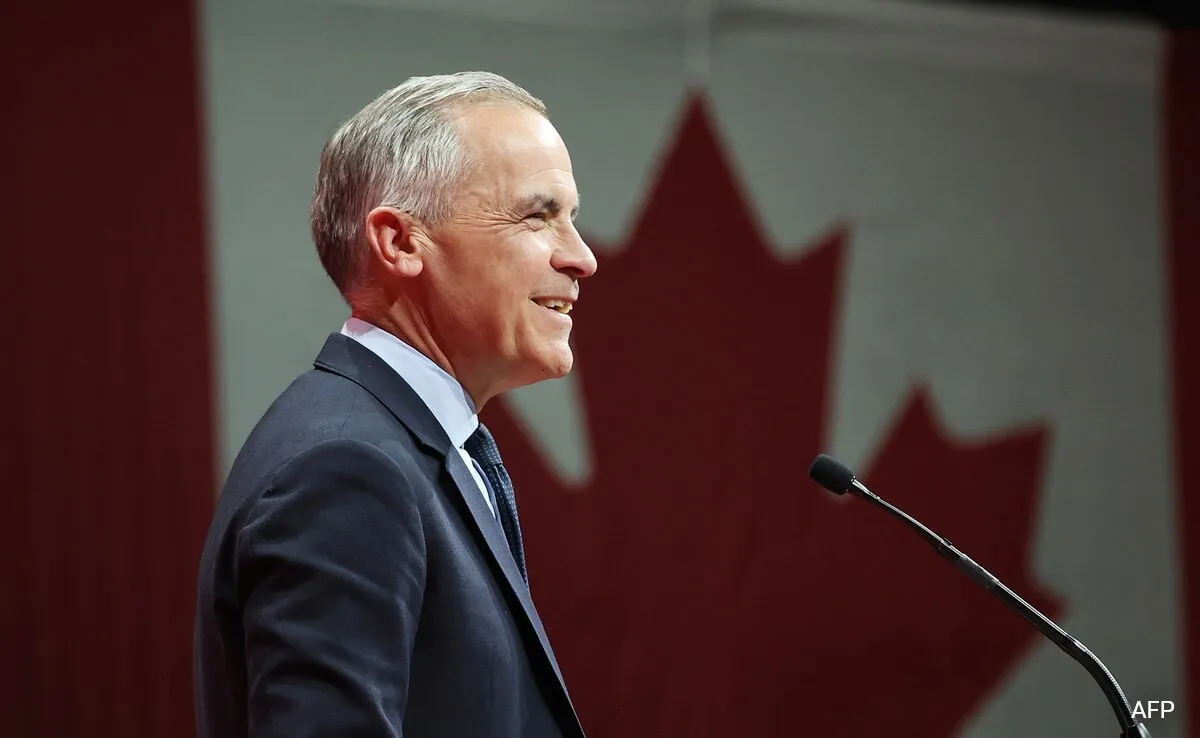
In a significant address following the federal elections held on Tuesday, Prime Minister Mark Carney proclaimed that Canada would “never” yield to the United States. This firm statement came as a direct response to the threats made by U.S. President Donald Trump, marking a pivotal moment in Canadian politics. Carney, the leader of the Liberal Party, emphasized his commitment to “represent everyone who calls Canada home,” reinforcing the notion that Canada’s sovereignty would remain intact amidst external pressures.
“As I have been warning for months, America wants our land, our resources, our water, our country. But these are not idle threats,” Carney declared. He articulated that President Trump is attempting to “break us” to gain control over Canada. “That will never ever happen,” he stated emphatically. Carney acknowledged that while Canadians have begun to move past the shock of what he called American betrayal, it is crucial to remember the lessons learned. “We have to look out for ourselves. And above all, we have to take care of each other,” he added, highlighting the importance of unity in facing external challenges.
During his address, Prime Minister Carney took a moment to congratulate his opponents, particularly Jagmeet Singh, the leader of the New Democratic Party (NDP), for his contributions to the election process. He also expressed gratitude to Pierre Poilievre, the leader of the Conservative Party, for his commitment to the nation they both cherish. Carney praised Singh for his leadership on progressive values, despite Singh announcing his intention to step down following the election results.
“We will always put Canada first,” Poilievre told his supporters in Canada’s capital after conceding defeat. He expressed his willingness to collaborate with the Liberal government in addressing the ongoing trade war initiated by Trump, stating the necessity of defending Canada’s interests. Poilievre emphasized the importance of negotiating a new trade deal that would protect Canadian sovereignty while also alleviating current tariff issues.
In a heartfelt message to supporters, Jagmeet Singh acknowledged the disappointing results for the NDP, revealing his plans to step down as party leader once a successor is found. “It’s been the honor of my life to lead the NDP and represent the people of Burnaby Central,” Singh reflected, reiterating the importance of hope and perseverance. “We are only defeated when we believe those that tell us we can never dream of a better Canada,” he added, expressing optimism for the party’s future despite the recent election outcome.
As Canadian broadcasters like CBC and CTV projected a victory for Mark Carney's Liberals, it remained unclear whether they would secure a majority in parliament. Current estimates suggest that the Liberals are projected to win 163 seats, falling short of the 172 needed for a majority government. Should the Liberals end up with a minority victory, Carney will need to negotiate with opposition parties for support or risk forming a government that could be challenged by other parties.
In this scenario, the Liberals’ first choice for collaboration would be the NDP, currently projected to secure only 7 seats. Alternatively, they may seek support from the Bloc Québécois, led by Yves-François Blanchet, who are expected to win around 23 seats.
Mark Carney, who recently succeeded Justin Trudeau as prime minister, brings a wealth of experience from his previous roles, including serving as the central bank governor in both Britain and Canada. His campaign centered around a strong anti-Trump message, appealing to voters by highlighting his capacity to navigate economic crises and bolster Canada’s global trading relationships. Carney’s assertion that “Trump wants to break us so America can own us” resonated with many Canadians, making the U.S. trade war a central theme of the election.
As the dust settles on this pivotal election, Canada’s future remains uncertain, with the government needing to navigate complex relations with the United States while addressing the needs and concerns of its citizens. The coming weeks will be crucial as the new government settles in and begins to chart a course forward.
In Canada, the election process is conducted with transparency, as federal election officials count ballots by hand in the presence of witnesses. These witnesses typically include campaign or party representatives. Ballots cast on election day are counted at the same polling station after polls close, while early and mail-in ballots are counted at their respective district offices. This meticulous counting process ensures the integrity of the electoral system and the trust of Canadian citizens in their democracy.